Martin Cosby's Blog, page 7
August 17, 2013
Interview: Paul Hodge, Freaky Folk Tales

Paul Hodge is the author of FreakyFolk Tales, a blog featuring fictional and factual accounts of ghosts, revenants and possessed objects that have inhabited ancestral homes in the south of England. The stories are brought to life through atmospheric prose, beautiful photography and artwork inspired by the golden era of ghosts; the Victorian age.
Please introduce yourself; who are you, and what do you do?Paul Hodge, author, teacher, bad banjo player, happily married with lots of lovely children, but given a long leash to gallivant about the country to explore and write about the seemingly inexhaustible plethora of tales of supernatural happenings upon these shores. I begin in Hampshire and work outwards.
What is the idea behind your blog Freaky Folk Tales? Freaky Folk Tales is an anthology of tales of the macabre and supernatural, from the haunting of ancestral homes to the malignancy of inanimate objects. The tales typically begin in the archives, from the report of a well or lesser known haunting that took place in a southern English county, and from here somewhat two-dimensional characters from history are given personalities and placed upon a stage where they creep ineluctably towards something dark calling them from the shadows.
Why a blog, though?Choosing a blog to profile my writing was an obvious choice because of the unrivalled exposure it offers up-and-coming authors. I believe strongly that writing should not be practised and performed in a vacuum; it’s important for an author to have some sort of dialogue with his or her readers. This is especially important in the genre of supernatural writing where anecdotal information coming back from a readership eager to share their tales of ghostly encounters can help to build a community of interest. It may even help to rejuvenate the powerful art of storytelling; I remember so vividly what it’s like to be scared by a story told around a campfire (or, in my case, a demolished factory on a London building site!)
Are there any places in Hampshire or neighbouring counties that feature in your writing?Yes! I’ve been meaning to put together a map that pinpoints the locations of these stories because most stem from a visit to an actual town or village, church or stately home.So, for Hampshire, there is TheBox-room , a tale of terror set in Fair Oak, Walk withMe (to the estuary) , a story of a death foretold that developed out of a winter evening stroll around Lepe Beach, and TheTerror of Tichborne , that hopefully speaks for itself!
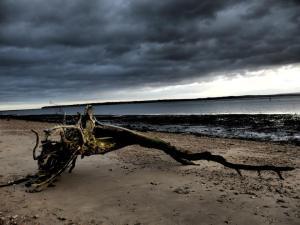
"The first is a protrusion of timber thrusting upward from the mud, tailing off to a sharp point, shrouded in a mass of spidery sea-mist. The second, a corpulent slab of wood, only a boat distance from the first, but much larger and denser, and laid flat. He flips between the two, blinking, adjusting his vision, attempting to get the best view possible. But then something curious takes place. From behind the hulk of wood to the west, a tiny shape emerges. At first, it appears to be the edge of a small craft, but as its silhouette pulls away from the jutting timber it takes on human shape." Walk With Me (To the estuary)
Dorset is another county rich in ghostlore. The Flames of Stalbridge Manor , JohnDaniels Returns and The Dark Conjurer of Batcombe are all set there. It’s also the setting for Return toTyneham , a personal favourite of mine despite its particularly long gestation!
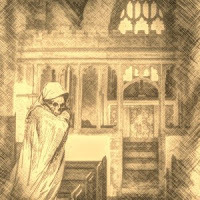
"The scraping ceased, and from above the pews, rose the figure of a man. He had his back partly towards me, but I could see he was holding a paper in his hand, which he appeared to compare with something on the ground, for he looked from one to the other several times. Then, with a gesture of anger, he crumpled the paper in his hand and turned, so that the rays of the moon fell full upon him. He was a big man, dressed in a sort of sleeve-waistcoat, knee-breeches, and what looked like worsted stockings and heavy boots. His eyes were sunken, and his face deathly pale. I could see his lips moving as though he was muttering to himself, but I couldn’t hear a sound. Then, he moved towards me, and I screamed with terror, for except that the eyes gleamed in their hollow sockets, his face was as the face of a corpse. Round his throat, exposed by the open shirt, were livid marks, such as once I saw on the throat of a convict, who hanged himself in his cell." The Dark Conjurer of Batcombe
What are your most notable works?I guess these would be The Yewsof Kingley Vale and Return to Tyneham .The first is based on my interest in the Yew as a tree to be both admired and feared.
 Kingley Vale, north-west of Chichester is the largest yew woodland in Britain. One story concerning the ancient woodland has always fascinated me. It tells of Danish invaders who came to Sussex over a thousand years ago. They had traveled great distances to conquer the Saxon communities of south Britain but the locals had fought back, slaying some of the invaders in skirmishes amongst the yew trees near Bow Hill. Legend says that the four large barrows upon the hill, known as The Devil’s Humps, are the graves of the dead Vikings. In late summer evenings, when the blood-red sap of the yews spills onto the chalk hill, it is said that their ghosts roam the dark and silent wood, tormented by defeat.
Kingley Vale, north-west of Chichester is the largest yew woodland in Britain. One story concerning the ancient woodland has always fascinated me. It tells of Danish invaders who came to Sussex over a thousand years ago. They had traveled great distances to conquer the Saxon communities of south Britain but the locals had fought back, slaying some of the invaders in skirmishes amongst the yew trees near Bow Hill. Legend says that the four large barrows upon the hill, known as The Devil’s Humps, are the graves of the dead Vikings. In late summer evenings, when the blood-red sap of the yews spills onto the chalk hill, it is said that their ghosts roam the dark and silent wood, tormented by defeat.Inspired by several visits to this beautiful, but eerie, sanctuary, I wrote The Yews of KingleyVale .
What is Return to Tyneham about?Tyneham stands as a defining example of the term ‘ghost village’. It was once a quiet little place, nestled on the Dorset coast; a quintessential chocolate box scene of a church, a school house and tidy lines of cottages. However, in 1943, the residents of the village were asked to leave so that the army could use the area for training. At the time, the folk received a promise from the government that once the war had ended they would be allowed to return. Sadly this did not happen; the promise was never honoured. Years passed, and the villagers accepted, sometimes grudgingly but always with a sense of honour in sacrifice, that they would never return. After years of neglect the church and the school house have been restored and are now museums. The remaining buildings are derelict and have a distinct presence about them, serving as a reminder of the many home sacrifices that were made for the war effort.
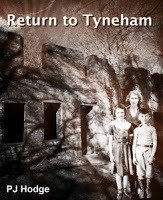 Over the years, the plight of Tyneham has continued to touch me; and the more I investigated its history, the more I felt compelled to write about it. And so, using the writing genre I know best – the ghost story – I wrote Return to Tyneham and attempted to convey the sense of duty that comforted and supported these people in their valiant efforts to help Britain win the war.It was these shapeless fragments of forgotten walls and buildings, as much bound together by the dark tangle of woodland that had encroached upon the settlement as destroyed by it, that had an unsettling effect upon Harry. Within this strange arrangement, there was something quite ghostly; and Harry knew, for all his mounting apprehension, that if anything stirred within its depths he would have to be very brave. And then, almost at the precise moment he had some hold of his composure, it had left him, replaced by a feeling of emptiness, and the sense of something approaching.
Over the years, the plight of Tyneham has continued to touch me; and the more I investigated its history, the more I felt compelled to write about it. And so, using the writing genre I know best – the ghost story – I wrote Return to Tyneham and attempted to convey the sense of duty that comforted and supported these people in their valiant efforts to help Britain win the war.It was these shapeless fragments of forgotten walls and buildings, as much bound together by the dark tangle of woodland that had encroached upon the settlement as destroyed by it, that had an unsettling effect upon Harry. Within this strange arrangement, there was something quite ghostly; and Harry knew, for all his mounting apprehension, that if anything stirred within its depths he would have to be very brave. And then, almost at the precise moment he had some hold of his composure, it had left him, replaced by a feeling of emptiness, and the sense of something approaching.How did your interest in the paranormal and the unexplained begin?I am indebted to an unfettered childhood spent traipsing over fields and amongst ruins for providing a collection of vivid imagery that has fuelled my writing.I grew up in London in the 1970s at a time when the city still retained the shells of crumbling post-war factories, littered with shadows of the past. Though pretty hazardous, they were my playground. This, together with Bunyan’s churches and graveyards, and the covered plague pits of Bunhill Row, was the catalyst for a life lived imagining what may lie beyond this earthly veil.I spent my childhood reading HG Wells, Poe, Ray Bradbury and borrowed numerous tomes on ghostlore and legends from my local library. Though I found it easy to get vicarious thrills through the safe medium of fiction, I wanted to explore the places I had read about. And so I went exploring, typically on train journeys to the home counties. I even found myself organising trips to visit the remains of places such as Borley Rectory (yes, I was on a very long leash at 11 years of age — my, how things have changed!)
Is it just books that have influenced your work?No, far from it, though books have been the primary influence. I am also indebted to my father for allowing me to watch such a rich diet of supernatural TV and film at a relatively young age (and fortunately I’m only ever so slightly unhinged because of it!) The 70s was a golden age for such themes of folk horror, stories of death foretold and children’s supernatural TV drama. So, in no particular order: Roeg’s Don’t Look Now (the Du Maurier book being wonderful too), The Woman in Black (1989 TV adaptation), The Signal Man (BBC TV adaptation), The Children of the Stones, Quatermass and the Pit and nearly all of the BBC’s Ghost Stories for Christmas, including the deliciously chilling Whistle and I’ll Come To You.
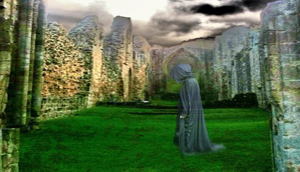
What do you hope to achieve from your stories?I just hope that through my writing I am able to spark an interest in these places, the sites that are off the beaten track yet tantalisingly close to our doorsteps. The world ‘appears’ to be a much more threatening place than it was when I was a child but what a redundant life it would be if we were to always tread so carefully that our knowledge became entirely dependent on the internet and second-hand sources of information. Not only do these fail in delivering the first-hand practical experience of actual physical encounter but they never tell us the whole story. For this, we need to venture forth, brave and dare I say it, slightly foolhardy, to gain such treasures of the imagination.
Why, specifically, ghost stories?My partner often asks me why I write ghost stories — and why I don’t write wholesome stories for children! My answer is simple: there is more horror in our local communities, on every street corner, than there is a single macabre tale. Tales of nefarious deeds and the supernatural are often vehicles for exploring human frailty; in telling them, we may help society to debate and unravel the age-old moralistic dilemmas we as humans are constantly trying to understand and define.
What are some of your favourite ghost stories?Oh, anything by Edgar Allan Poe and MR James of course! But beyond these seminal tales, I am a huge fan of gothic writing of the 19th and early 20th century , particularly the supernatural stories written by women writers who were highly prolific in the ghost story genre during Victorian and Edwardian times. In my opinion there’s no one better at telling a tale of flesh-creeping terror than Edith Nesbit, primarily associated with fantasy novels for children, but not at all well known today as a Gothic writer. What I love about Nesbit is that she not only places emphasis on the impact that unexplained phenomena have upon her characters but, most importantly, she presents the terrifying experience as a means of unravelling whatever it is that lies within the core of relationships. Again, the ghost story used a vehicle for dealing with the foibles of what makes humans human!
Do you believe in ghosts?I was wondering when you were going to ask that!Well, in a short answer, yes, but I think I’ll ask one of my characters to elaborate on my behalf:
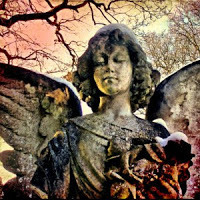 “It appears to me that it is entirely possible that a spiritual or unearthly shape, a spectral simulacrum, a belated reflection of life, is capable of subsisting for some period, of releasing itself from the body, or surviving it, of traversing vast distances in the twinkling of an eye, of manifesting in solid form to the living and, sometimes, of communicating with them. There is no earthly use trying to banish or exorcise them by such a simple thing as disbelief in them. I say that it is entirely the prerogative of the spirit, or for those who make use of its name first to prove that it exists. In this sense, I very much welcome their manifestations!” The investigations of Dr Dankworth (unpublished)
“It appears to me that it is entirely possible that a spiritual or unearthly shape, a spectral simulacrum, a belated reflection of life, is capable of subsisting for some period, of releasing itself from the body, or surviving it, of traversing vast distances in the twinkling of an eye, of manifesting in solid form to the living and, sometimes, of communicating with them. There is no earthly use trying to banish or exorcise them by such a simple thing as disbelief in them. I say that it is entirely the prerogative of the spirit, or for those who make use of its name first to prove that it exists. In this sense, I very much welcome their manifestations!” The investigations of Dr Dankworth (unpublished)Have you had an experience that could not be explained?No, but a number of people who I hold in the highest regard have told me tales that have chilled my spine.One in particular was told by my ex-father-in-law, a well respected medical officer for the county of Gwent. One Christmas Eve, several years ago, he had gathered with friends at his home in Cardiff to celebrate. After a few light drinks, the host, Mr H, bid goodbye to one of his medical team who had to return home, a journey of several miles out of the city. It was a particularly cold and icy night, and he reminded the young fellow to drive carefully considering the inclement conditions. It was no more than half an hour after he had left when Mr H and his wife heard an almighty crash from an upstairs bedroom. When they entered the room to check what had made such a commotion they found that an ornament of significant size and weight had shattered into pieces. Nothing had fallen upon it; neither was there anything or anyone around at the time to topple it from its base. For some reason unexplained it had simply splintered into fragments.Later that night, Mr H received a distressing telephone phone call from the police. It appeared that shortly after the young medical chap had left their home, he had encountered a patch of ice just before crossing a bridge, skidded uncontrollably and ended up driving off the road and into the river, where he had little chance of survival.Well you guess how upset Mr H and his wife were. It wasn’t until they had gotten over their initial shock, however, when their thoughts turned to the figurine that had broken into bits. Their conclusions were cold and unsettling. You see, they realised that not only had the ornament been given to them as a gift by their medical friend, the one who had been killed, but it was likely that the figure had smashed into pieces at almost exactly the time when the unfortunate chap had entered the river and drowned.
What scares you?In short, doppelgängers!When I was a child, I had several terribly upsetting recurring dreams. One, involved my parents and myself sitting in our living room. In this particular dream, I would be sitting on a chair opposite my mother and father, terrified, waiting for the inevitable knocking on the living room to take place. When it came, I would plead with my father not to answer it, but, as is the futility of attempting to divert a dream, he always would. On seeing him about to turn the handle to open the door, I would run back to the sofa and curl up in a ball, gazing out from a gap between my fingers. As always, a man and a woman would step in, the living duplicates of my parents, their hands held aloft, their thumbs parted and tips joined, as if to strangle; then, they would make their way towards their intended victims with slow exaggerated steps. It was at this point the dream would conclude with my screaming – something that transferred itself beyond mere dream – and a pleading for my parents to run. But they never did. And every time I knew that they were to be replaced.
Which is the most memorable place you have investigated? Why?That would be Balcombe Viaduct which crosses the Ouse Valley in West Sussex. The railway itself is an engineering marvel, with its long turreted tunnels and huge, red-bricked viaducts that took three years to build. But for every such project of its day, there was a cost in human lives as well as financial. It took over three thousand men to build the railway, the workers equipped with little more than gunpowder, picks and shovels. For a construction project of this size, accidents would have been a fairly regular occurrence; if a tunnel or bank were to collapse, the consequences would be extremely grim.And where there is toil, hardship and tragedy, the ghosts of men are sure to follow.These ghosts are explored in my short story, The Viaduct .
 "Peter took an anxious gulp of air and reluctantly joined the march towards the viaduct. There was something about the structure that made him feel quite uncomfortable. As he walked, the sensation grew more intense until halfway across the field he stopped suddenly and shivered; for he had a distinct feeling that someone was watching. Drawing closer, he was certain that whatever hid amongst the shadows of the viaduct wasn’t at all friendly."The Viaduct
"Peter took an anxious gulp of air and reluctantly joined the march towards the viaduct. There was something about the structure that made him feel quite uncomfortable. As he walked, the sensation grew more intense until halfway across the field he stopped suddenly and shivered; for he had a distinct feeling that someone was watching. Drawing closer, he was certain that whatever hid amongst the shadows of the viaduct wasn’t at all friendly."The ViaductWhat are you working on now?Three things. The first is a story provisionally titled The Ghost Bureau. It’s based on research I’ve completed on the life of William T. Stead, an English newspaper editor who claimed to be in receipt of messages from the spirit world. In 1909, he established Julia’s Bureau where inquirers could obtain information about the spirit world from a group of resident mediums. The story is about one of the many people he employed to document these manifestations – his private secretaries to the dead.The second does not yet have a title but it involves one of my favourite themes: the malignancy of inanimate objects. It’s the story of a Hampshire watermill, built from the timbers of an 18th century American warship, that’s host to several unbidden guests.The third, Rise of the Dolmen, is something completely different. It’s a little reminiscent of the 1970s TV series, Children of the Stones and book by Jeremy Burnham. In a nutshell, it’s the tale of a Victorian farmer who disturbs fragments of a megalithic tomb and revives an ancient curse!
Do you have any published stories?I’m excited to announce that my first collection of stories, Ghosts, revenants and other unbidden guests; The First Volume of supernatural stories from the pages of Freaky Folk Tales will be published in November/December and will be available to purchase in Kindle ebook and paperback forms from Amazon.Four of my short stories are currently available in paperback and ebook: A Tale of Chirbury has been published in Darker Times Volume 3 , available from Amazon.The Haunted Cupboard and Return to Tyneham have been published in Darker Times Volume 4, available from Amazon here.The Yews of Kingley Vale was published in Few Words magazine in 2012.
If readers want to find out more about you and your works, where can they go?
They should visit the Freaky Folk Tales blog:
www.freakyfolktales.com
For those with a Facebook account, please visit and ‘like’ Freaky Folk Tales Facebook:
www.facebook.com/morefreakyfolktales
Published on August 17, 2013 00:03
August 15, 2013
RIP Ken Cowley
I was saddened to hear of the passing of Ken Cowley, long-time member of the British Fantasy Society. I first came across his name a few years ago when I acquired a signed copy of Powers of Darkness by Robert Aickman. When it arrived, I found it to be inscribed, "for Ken Cowley with best wishes Robert Aickman February 1976". At that time of course I had not heard the name, so I did a little digging and found out that, in addition to being involved with the BFS, and an avid book collector, he also dabbled in writing. He had a collection of short stories published in 1999, called Miscellany Macabre: Tales of the Unknown, plus a few tales published by the BFS. I have just ordered a copy of Miscellany Macabre from Abe Books, so it will be interesting to have a look at that.
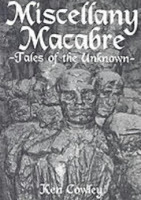 Ken Cowley's only collection of short stories,
Ken Cowley's only collection of short stories,
Miscellany Macabre: Tales of the UnknownOnce I had discovered who Ken Cowley was, I managed to find his e-mail address; and I risked sending him a note, asking about the provenance of my copy of Powers of Darkness. To my great surprise and eternal gratitude, the very next morning I received a wonderful response, which I will share with you here – edited a little (I very much hope he would not have minded).
Dear Mr.Cosby,
Yes, the signature, dedication and dating are genuine. The occasion was the 1976 annual convention of the British Fantasy Society at Birmingham when Aickman was guest of honour. They unloaded him on to me because they were finding him a bit difficult. The BFS did not know quite what to make of him or he – being a rather prickly gentleman who did not suffer fools gladly – of them. In fact he gave me a rather hard time until he realised that I had actually read and much admired his work and that I knew what I was talking about, being much read in the genre and an occasional writer myself. I never met him again and – being a part-time dealer – had no qualms about letting go all the books he signed for me in due course, particularly as I had the complete two-volume Tartarus collection in my private collection. I remember little about our chat except that he told me he got the inspiration for some of his stories from his dreams, which did not surprise me as some of them have a dream-like lack of cause and effect, reminding me somewhat of Walter de la Mare.
Regards, Ken Cowley.
I thought at the time, how wonderful to have even such minor contact with someone who had met Robert Aickman himself. I just loved the description that he was 'a rather prickly gentleman who did not suffer fools gladly' – who'd have thought! We subsequently exchanged a few more e-mails discussing short stories in general, but then the next I heard was of his passing. Still, I thought it was an interesting enough tale to share.
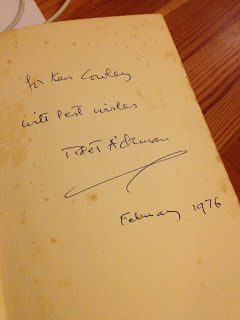
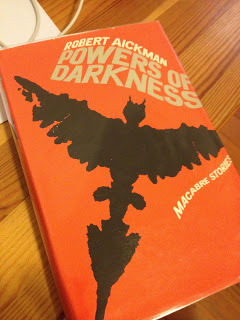
I look forward to reading Ken Cowley's collection, and I will no doubt write a review in due course. I only wish he were still around to read my opinions of his work.
 Ken Cowley's only collection of short stories,
Ken Cowley's only collection of short stories, Miscellany Macabre: Tales of the UnknownOnce I had discovered who Ken Cowley was, I managed to find his e-mail address; and I risked sending him a note, asking about the provenance of my copy of Powers of Darkness. To my great surprise and eternal gratitude, the very next morning I received a wonderful response, which I will share with you here – edited a little (I very much hope he would not have minded).
Dear Mr.Cosby,
Yes, the signature, dedication and dating are genuine. The occasion was the 1976 annual convention of the British Fantasy Society at Birmingham when Aickman was guest of honour. They unloaded him on to me because they were finding him a bit difficult. The BFS did not know quite what to make of him or he – being a rather prickly gentleman who did not suffer fools gladly – of them. In fact he gave me a rather hard time until he realised that I had actually read and much admired his work and that I knew what I was talking about, being much read in the genre and an occasional writer myself. I never met him again and – being a part-time dealer – had no qualms about letting go all the books he signed for me in due course, particularly as I had the complete two-volume Tartarus collection in my private collection. I remember little about our chat except that he told me he got the inspiration for some of his stories from his dreams, which did not surprise me as some of them have a dream-like lack of cause and effect, reminding me somewhat of Walter de la Mare.
Regards, Ken Cowley.
I thought at the time, how wonderful to have even such minor contact with someone who had met Robert Aickman himself. I just loved the description that he was 'a rather prickly gentleman who did not suffer fools gladly' – who'd have thought! We subsequently exchanged a few more e-mails discussing short stories in general, but then the next I heard was of his passing. Still, I thought it was an interesting enough tale to share.


I look forward to reading Ken Cowley's collection, and I will no doubt write a review in due course. I only wish he were still around to read my opinions of his work.
Published on August 15, 2013 04:41
August 4, 2013
Guest post Q&A; James Everington
Today is a big day: I present you with the first ever guest post on my blog.
It is highly appropriate then that it should be by James Everington, one of my favourite writers around right now. His latest collection, Falling Over , was published last month by Infinity Plus, and is excellent. Here is my review if you missed it. James's first collection, The Other Room , is just as good; as is his novella The Shelter.
I presented Mr Everington with some questions, and he was good enough to supply me with some answers.
P { margin-bottom: 0.21cm; }A:link { }
P { margin-bottom: 0.21cm; }A:link { } P { margin-bottom: 0.21cm; }A:link { } What has been the most influential short story you've read?
Cold Print by Ramsey Campbell, which is the second story in his collection Dark Feasts. I bought the book from a second-hand shop in Cleathorpes when I was about fifteen. The firststory in the book was one of Campbell's early tales when he was heavily indebted to Lovecraft and whilst good it didn't blow me away. Cold Print (and in fact every other story in the book) did. The influence of Lovecraft was still strong, but you could tell Campbell had really found his own voice now. It, and the stories that followed, taught me lots of things I still believe about the weird tale – that it works especially well in the short story form, that ambiguity is key, and that writing horror is no barrier to writing subtle, effective prose. That horror can spring from such prose, in fact.
I couldn't afford any other Ramsey Campbell books for years (as a student my book money was spent on books I had to study) and so Dark Feasts was my only exposure to Campbell for a long time; I read it again and again.
What is the most effective opening paragraph of a short story you can recall off-hand?
Off the top of my head (and because I read it recently) Luxemburgby Robert Shearman. The first paragraph tells the reader, in quite a dry, matter of fact tone, that the country of Luxemburg has disappeared, but that no one outside really realised for a few days... It breaks the cliched "show don't tell" rule with abandon and really grabs you.
The story is from his collection Love Songs For The Shy & Cynical and ever story in it is indeed a love story... or a story about love, anyway. Yes, even this one about Luxemburg disappearing.
What is the most effective closing paragraph of a short story you can remember off-hand?
I love the final line of Arthur C Clarke's The Nine Billion Names Of God: "overhead, without any fuss, the stars were going out."
"Without any fuss" – I mean, that's genius, right there on the page.
What made you think you could be a writer?
Well, that's a tough question... I think, in the final analysis, despite all the setbacks and self-doubt there was just a stubborn bit of me that always knew I could. I was writing for over ten years before I really showed anyone any stories I'd done, and I think if I'd not noticed improvements in what I was doing myself, little bits of writing where I thought, Yeah that's it, then I would have given up long before.
Then of course there's sending your work out into the big bad world, and little firsts amid all the rejections – the first story accepted (thank you, Morpheus Tales!) the first reader review.
What made you think you couldn't be a writer?
I like the way this question is optimistically in the past-tense...
Anyway, like many writers I think I yo-yo between a confidence in my own abilities (see above) and a feeling that I'm just bluffing my way through things without really having a clue. The thing that's most likely to trigger this is reading something brilliant by another writer. Logically I know they probably sweated and struggled to get it on the page, but emotionally: goddamn it's crushing.
What is the most frightening thing you have read?
Okay, well there's lots of possible answers to this, so I'll pick something a bit less obvious and more obscure. It's a short story by Mark Chadbourn called Whisper Lane which I read in the anthology The British Fantasy Society: A Celebration. I think it is out of print now, so I hope Whisper Lane is available somewhere else to buy, as it's phenomenal.
It's about a poverty-ridden estate and a man who goes there after his brother's death and the reasons for the hopelessness of the people who live there. The conceit behind it is brilliant, and the real-life horrors and the supernatural ones are seamlessly interwoven. Find it somewhere, if you can, and read it. And then tell other people to read it.
What is the most frightening thing you have written?
Spoilers!
I think the ending of Public Interest Story, which closes Falling Over, is the bit of my writing that still scares me the most. There's something about the inevitability of the main character's fate, combined with the senselessness of it, that gets to me. It doesn't matter how brave he is when he's so pointlessly trapped – and maybe that's a scary but accurate way to think of death overall. As something that just sucks the meaning from everything, no matter what stories we tell ourselves.
The fact that Joel dies at the hands of an angry crowd of people adds to the horror, as well. People are always more scary and vicious and stupid when they're acting as a mob rather than individuals.
How different would your writing career be without social media?
Very different – a lot quieter, in both good ways and bad. Good because all the time spent on Twitter or writing blogs or XYZ eats into my actual writing time. But without social media, I wouldn't have meet all the great people – readers, writers, editors, publishers, nutjobs – who I have, so more than likely I wouldn't have a 'career'. I doubt I'd have found a publisher for Falling Overso easily without social media, and I certainly wouldn't be answering these questions for you Martin...
Lots of people have helped me, in both small ways and big, and I hope I've helped a few people in turn.
At what stage of your writing career would you 'give up your day job'?
Oh, I'm not going to jinx it by answering that one... !
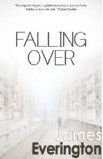
Falling Over is published by Infinity Plus and is out now. Ten stories of unease, fear and the weird.
"Good writing gives off fumes, the sort that induce dark visions, and Everington’s elegant, sophisticated prose is a potent brew. Imbibe at your own risk." – Robert Dunbar, author of The Pines and Martyrs & Monsters.
Find out more at Scattershot Writing.
It is highly appropriate then that it should be by James Everington, one of my favourite writers around right now. His latest collection, Falling Over , was published last month by Infinity Plus, and is excellent. Here is my review if you missed it. James's first collection, The Other Room , is just as good; as is his novella The Shelter.
I presented Mr Everington with some questions, and he was good enough to supply me with some answers.
P { margin-bottom: 0.21cm; }A:link { }
P { margin-bottom: 0.21cm; }A:link { } P { margin-bottom: 0.21cm; }A:link { } What has been the most influential short story you've read?
Cold Print by Ramsey Campbell, which is the second story in his collection Dark Feasts. I bought the book from a second-hand shop in Cleathorpes when I was about fifteen. The firststory in the book was one of Campbell's early tales when he was heavily indebted to Lovecraft and whilst good it didn't blow me away. Cold Print (and in fact every other story in the book) did. The influence of Lovecraft was still strong, but you could tell Campbell had really found his own voice now. It, and the stories that followed, taught me lots of things I still believe about the weird tale – that it works especially well in the short story form, that ambiguity is key, and that writing horror is no barrier to writing subtle, effective prose. That horror can spring from such prose, in fact.
I couldn't afford any other Ramsey Campbell books for years (as a student my book money was spent on books I had to study) and so Dark Feasts was my only exposure to Campbell for a long time; I read it again and again.
What is the most effective opening paragraph of a short story you can recall off-hand?
Off the top of my head (and because I read it recently) Luxemburgby Robert Shearman. The first paragraph tells the reader, in quite a dry, matter of fact tone, that the country of Luxemburg has disappeared, but that no one outside really realised for a few days... It breaks the cliched "show don't tell" rule with abandon and really grabs you.
The story is from his collection Love Songs For The Shy & Cynical and ever story in it is indeed a love story... or a story about love, anyway. Yes, even this one about Luxemburg disappearing.
What is the most effective closing paragraph of a short story you can remember off-hand?
I love the final line of Arthur C Clarke's The Nine Billion Names Of God: "overhead, without any fuss, the stars were going out."
"Without any fuss" – I mean, that's genius, right there on the page.
What made you think you could be a writer?
Well, that's a tough question... I think, in the final analysis, despite all the setbacks and self-doubt there was just a stubborn bit of me that always knew I could. I was writing for over ten years before I really showed anyone any stories I'd done, and I think if I'd not noticed improvements in what I was doing myself, little bits of writing where I thought, Yeah that's it, then I would have given up long before.
Then of course there's sending your work out into the big bad world, and little firsts amid all the rejections – the first story accepted (thank you, Morpheus Tales!) the first reader review.
What made you think you couldn't be a writer?
I like the way this question is optimistically in the past-tense...
Anyway, like many writers I think I yo-yo between a confidence in my own abilities (see above) and a feeling that I'm just bluffing my way through things without really having a clue. The thing that's most likely to trigger this is reading something brilliant by another writer. Logically I know they probably sweated and struggled to get it on the page, but emotionally: goddamn it's crushing.
What is the most frightening thing you have read?
Okay, well there's lots of possible answers to this, so I'll pick something a bit less obvious and more obscure. It's a short story by Mark Chadbourn called Whisper Lane which I read in the anthology The British Fantasy Society: A Celebration. I think it is out of print now, so I hope Whisper Lane is available somewhere else to buy, as it's phenomenal.
It's about a poverty-ridden estate and a man who goes there after his brother's death and the reasons for the hopelessness of the people who live there. The conceit behind it is brilliant, and the real-life horrors and the supernatural ones are seamlessly interwoven. Find it somewhere, if you can, and read it. And then tell other people to read it.
What is the most frightening thing you have written?
Spoilers!
I think the ending of Public Interest Story, which closes Falling Over, is the bit of my writing that still scares me the most. There's something about the inevitability of the main character's fate, combined with the senselessness of it, that gets to me. It doesn't matter how brave he is when he's so pointlessly trapped – and maybe that's a scary but accurate way to think of death overall. As something that just sucks the meaning from everything, no matter what stories we tell ourselves.
The fact that Joel dies at the hands of an angry crowd of people adds to the horror, as well. People are always more scary and vicious and stupid when they're acting as a mob rather than individuals.
How different would your writing career be without social media?
Very different – a lot quieter, in both good ways and bad. Good because all the time spent on Twitter or writing blogs or XYZ eats into my actual writing time. But without social media, I wouldn't have meet all the great people – readers, writers, editors, publishers, nutjobs – who I have, so more than likely I wouldn't have a 'career'. I doubt I'd have found a publisher for Falling Overso easily without social media, and I certainly wouldn't be answering these questions for you Martin...
Lots of people have helped me, in both small ways and big, and I hope I've helped a few people in turn.
At what stage of your writing career would you 'give up your day job'?
Oh, I'm not going to jinx it by answering that one... !

Falling Over is published by Infinity Plus and is out now. Ten stories of unease, fear and the weird.
"Good writing gives off fumes, the sort that induce dark visions, and Everington’s elegant, sophisticated prose is a potent brew. Imbibe at your own risk." – Robert Dunbar, author of The Pines and Martyrs & Monsters.
Find out more at Scattershot Writing.
Published on August 04, 2013 18:17
July 30, 2013
More short stories of 2013
I've been fortunate enough to read so many great short stories this year that I feel compelled to share some more with you. I featured ten of my favourites from the first half of 2013 here, including tales from David Haynes, Tim Jeffreys, James Brogden, PJ Hodge, Brian Aldiss and more. As usual, I must remind you that these are not necessarily newly-published short stories, just ones that are new to me.
 1.
The
Skins
by Reggie Oliver. From
The Complete Symphonies of Adolf Hitler
.
1.
The
Skins
by Reggie Oliver. From
The Complete Symphonies of Adolf Hitler
.
I like Reggie Oliver's short stories very much; and, when I saw that his debut collection from back in 2008 was available on Kindle for the first time, I had to read it. In some ways I think it contains his best work, as it is a little more varied than his two later collections, Masques of Satan and Mrs Midnight. Perhaps it's a little uneven, but all the more interesting for it. The Skins I found to be the most memorable of the tales therein, but they are all excellent in their own way, and as always impeccably written. Oliver's stories often involve the tawdry world of the stage, and, as he writes from experience, they have the benefit of authenticity. Syd and Peggy Brinton arrive at the Pier Pavillion Theatre in Scarmouth as the new speciality act; a 'Comedy Tap Sensation'. However, it soon becomes obvious that all is not as it should be. One part of their act involves donning the skins; Syd and Peggy form the front and rear of a pantomime horse, in which they perform a tap routine. The intimacy of this, both physically and mentally, is brought into uncomfortably sharp focus through jealousy, infidelity and revenge. What happens when Syd is unable to uphold his side of the bargain? This is a grim tale of the boards with a suitably downbeat ending.
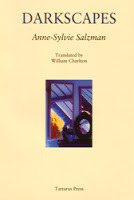 2.
Passing Forms
by Anne-Sylvie Salzman. From
Darkscapes
.This is the latest from Tartarus Press, and I must admit I have not yet finished reading the whole collection; however, I was moved to comment on this tale straight away. It is one of the most interesting things I've read for a while, combining the bones of a fairly conventional ghost story with pared-back prose and a matter-of-fact style which reminded me a little of Camus. (It may be significant that Salzman's stories are translated from the original French.) Bale is an academic who is on a walking holiday in a remote part of Scotland, recovering from his recent divorce. He explores the cold, misty and hostile countryside and makes a gruesome discovery; as the story expands, he makes more. Is he somehow a catalyst? This is a fascinating snap shot of Salzman's work, and I look forward to her other stories.
2.
Passing Forms
by Anne-Sylvie Salzman. From
Darkscapes
.This is the latest from Tartarus Press, and I must admit I have not yet finished reading the whole collection; however, I was moved to comment on this tale straight away. It is one of the most interesting things I've read for a while, combining the bones of a fairly conventional ghost story with pared-back prose and a matter-of-fact style which reminded me a little of Camus. (It may be significant that Salzman's stories are translated from the original French.) Bale is an academic who is on a walking holiday in a remote part of Scotland, recovering from his recent divorce. He explores the cold, misty and hostile countryside and makes a gruesome discovery; as the story expands, he makes more. Is he somehow a catalyst? This is a fascinating snap shot of Salzman's work, and I look forward to her other stories.
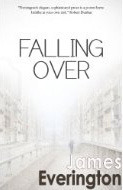
3. New Boy by James Everington. From Falling Over.I think James Everington is one of the best new short story writers around right now, and I couldn't wait to read Falling Over, released last month by Infinity Plus. New Boy is one of my favourites from that collection, perhaps because it rings so true; I feel that it may contain more than a hint about the author's own experiences. The manager is returning to work after some time off, and finds that things have changed in his absence. There is indeed a 'new boy', but why does he seem so familiar? The manager gradually loses all authority, and is forced to come to terms with both his past and his future. I feel this may be the pivotal tale of the collection, incorporating aspects of alienation, mistaken identity, mystery and, ultimately, enlightenment. Welcome to the weird, slightly off-centre world of James Everington! By the way, I reviewed Falling Over here if you missed it.
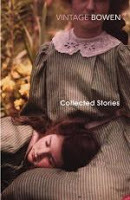
4. The Shadowy Third by Elizabeth Bowen. From The Collected Stories.
Elizabeth Bowen is my latest obsession. I had read a few of her short stories many years ago, and I was aware of her reputation as one of the best short story writers, but I was not aware of quite how much she had written. I recently acquired a copy of The Collected Stories of Elizabeth Bowen from The Book Depository, and was startled to see it contained no fewer than 79 short stories! The Shadowy Third is a subtle tale of mystery and intrigue, in the truest sense of those words. Martin is met at the train station on his way home from work, as is usual, by his second wife. He returns home with her to what had originally been the matrimonial home for him and his first-wed. As the story progresses, it is clear that odd things are happening, and that the house is having an effect upon them. Or is it caused by the ghost of his first wife? So much is left unsaid in this enigmatic tale. Bowen treats her readers like grown-ups, and her stories often have to be deciphered by the reader, but it's well worth the effort.
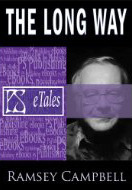
5. The Long Way by Ramsey Campbell.
This is a short story from PS Publishing, and a good way to get a reasonably-priced taste of Ramsey Campbell. I have never enjoyed his novels, but his short stories are quite different; when he writes a good 'un, it's about as good as it gets. This may not be one of his very best (see The Companion, The Guide ... etc), but I found it compelling nonetheless, and so evocative of my own childhood. Craig, the youthful protagonist, has to look after his Uncle Philip who is wheelchair bound. This involves walking through a rough part of the neighbourhood, along run-down and partially demolished streets. If he takes a certain route, he passes a house amid those boarded-up and derelict surroundings, in which he sees a strange, motionless stick-like figure. Each time he steels himself to walk that way, however, the figure has moved ... just a little. When the row of houses is eventually demolished, does it bring redemption, or something much worse? The Long Way is an atmospheric story of childhood guilt, reminiscence and terror.
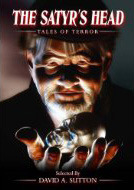
6. The Nightingale Floor s by James Wade. From The Satyr's Head: Tales of Terror .
This is a gem, from what was something of a golden era of horror; the 1970s. I was recently searching around for a creepy short story set in a museum, as mentioned on my blog here. I turned up trumps with this, the tale of the Ehlers Museum on the South Side of Chicago. A university dropout with a minor drugs problem (well, it was written within memory of the '60s I guess) wanders aimlessly through derelict streets, and discovers the dusty old museum needs a night watchman. I must say the story begins unpromisingly, but through a little perseverance the reader is rewarded with a supremely atmospheric tale and a satisfying conclusion. I won't give any spoilers, but it is well worth a look, and it influenced my short story Building Bridges, which will be part of my forthcoming collection Dying Embers.
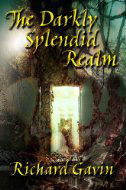
7. The Bitter Taste of Dread-Moths by Richard Gavin. From The Darkly Splendid Realm .
Richard Gavin's work is difficult to pin down. Multi-layered, it is at once grotesque, horrific, fantastic and yet anchored in the everyday. In this dark tale Carolyn Mears is writing a thesis for her BA entitled Wide Eyed and Wider Minded: The Role of Fear in Eastern Mystery Traditions. By her own admission, a poor effort, but when she is contacted by a Dr Valzer, who corrects her on one aspect of the paper, she is drawn in to a nightmare world. She meets Valzer, who is experimenting with the production of the physical residue of fear, and becomes the subject of his bizarre research. She is forced to confront her own mortality, and to match her own memories of being born with something far more challenging. This is a roller-coaster ride, and his collection The Darkly Splendid Realm is well worth a look.
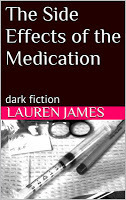
8. The Devils by Lauren James. From The Side-Effects of the Medication .
Lauren James is new on the scene, and came highly recommended to me. I was not disappointed. The Side-Effects of the Medication is her debut, and is full of interesting ideas and striking imagery; throughout the collection, her voice gets stronger, and the final couple of stories, The Devils and Full, really jumped out at me. The Devils begins as we meet the unwholesome Quentin Fisher, whose daughter Mellie is imprisoned behind bars in her attic bedroom. The reader is lulled into a false sense of security, assuming this to be a conventional tale of possession and exorcism, yet it turns into something quite different and much more unsettling. Highly recommended reading, and I look forward to Lauren James's writing developing in the future.
 1.
The
Skins
by Reggie Oliver. From
The Complete Symphonies of Adolf Hitler
.
1.
The
Skins
by Reggie Oliver. From
The Complete Symphonies of Adolf Hitler
.I like Reggie Oliver's short stories very much; and, when I saw that his debut collection from back in 2008 was available on Kindle for the first time, I had to read it. In some ways I think it contains his best work, as it is a little more varied than his two later collections, Masques of Satan and Mrs Midnight. Perhaps it's a little uneven, but all the more interesting for it. The Skins I found to be the most memorable of the tales therein, but they are all excellent in their own way, and as always impeccably written. Oliver's stories often involve the tawdry world of the stage, and, as he writes from experience, they have the benefit of authenticity. Syd and Peggy Brinton arrive at the Pier Pavillion Theatre in Scarmouth as the new speciality act; a 'Comedy Tap Sensation'. However, it soon becomes obvious that all is not as it should be. One part of their act involves donning the skins; Syd and Peggy form the front and rear of a pantomime horse, in which they perform a tap routine. The intimacy of this, both physically and mentally, is brought into uncomfortably sharp focus through jealousy, infidelity and revenge. What happens when Syd is unable to uphold his side of the bargain? This is a grim tale of the boards with a suitably downbeat ending.
 2.
Passing Forms
by Anne-Sylvie Salzman. From
Darkscapes
.This is the latest from Tartarus Press, and I must admit I have not yet finished reading the whole collection; however, I was moved to comment on this tale straight away. It is one of the most interesting things I've read for a while, combining the bones of a fairly conventional ghost story with pared-back prose and a matter-of-fact style which reminded me a little of Camus. (It may be significant that Salzman's stories are translated from the original French.) Bale is an academic who is on a walking holiday in a remote part of Scotland, recovering from his recent divorce. He explores the cold, misty and hostile countryside and makes a gruesome discovery; as the story expands, he makes more. Is he somehow a catalyst? This is a fascinating snap shot of Salzman's work, and I look forward to her other stories.
2.
Passing Forms
by Anne-Sylvie Salzman. From
Darkscapes
.This is the latest from Tartarus Press, and I must admit I have not yet finished reading the whole collection; however, I was moved to comment on this tale straight away. It is one of the most interesting things I've read for a while, combining the bones of a fairly conventional ghost story with pared-back prose and a matter-of-fact style which reminded me a little of Camus. (It may be significant that Salzman's stories are translated from the original French.) Bale is an academic who is on a walking holiday in a remote part of Scotland, recovering from his recent divorce. He explores the cold, misty and hostile countryside and makes a gruesome discovery; as the story expands, he makes more. Is he somehow a catalyst? This is a fascinating snap shot of Salzman's work, and I look forward to her other stories.
3. New Boy by James Everington. From Falling Over.I think James Everington is one of the best new short story writers around right now, and I couldn't wait to read Falling Over, released last month by Infinity Plus. New Boy is one of my favourites from that collection, perhaps because it rings so true; I feel that it may contain more than a hint about the author's own experiences. The manager is returning to work after some time off, and finds that things have changed in his absence. There is indeed a 'new boy', but why does he seem so familiar? The manager gradually loses all authority, and is forced to come to terms with both his past and his future. I feel this may be the pivotal tale of the collection, incorporating aspects of alienation, mistaken identity, mystery and, ultimately, enlightenment. Welcome to the weird, slightly off-centre world of James Everington! By the way, I reviewed Falling Over here if you missed it.

4. The Shadowy Third by Elizabeth Bowen. From The Collected Stories.
Elizabeth Bowen is my latest obsession. I had read a few of her short stories many years ago, and I was aware of her reputation as one of the best short story writers, but I was not aware of quite how much she had written. I recently acquired a copy of The Collected Stories of Elizabeth Bowen from The Book Depository, and was startled to see it contained no fewer than 79 short stories! The Shadowy Third is a subtle tale of mystery and intrigue, in the truest sense of those words. Martin is met at the train station on his way home from work, as is usual, by his second wife. He returns home with her to what had originally been the matrimonial home for him and his first-wed. As the story progresses, it is clear that odd things are happening, and that the house is having an effect upon them. Or is it caused by the ghost of his first wife? So much is left unsaid in this enigmatic tale. Bowen treats her readers like grown-ups, and her stories often have to be deciphered by the reader, but it's well worth the effort.

5. The Long Way by Ramsey Campbell.
This is a short story from PS Publishing, and a good way to get a reasonably-priced taste of Ramsey Campbell. I have never enjoyed his novels, but his short stories are quite different; when he writes a good 'un, it's about as good as it gets. This may not be one of his very best (see The Companion, The Guide ... etc), but I found it compelling nonetheless, and so evocative of my own childhood. Craig, the youthful protagonist, has to look after his Uncle Philip who is wheelchair bound. This involves walking through a rough part of the neighbourhood, along run-down and partially demolished streets. If he takes a certain route, he passes a house amid those boarded-up and derelict surroundings, in which he sees a strange, motionless stick-like figure. Each time he steels himself to walk that way, however, the figure has moved ... just a little. When the row of houses is eventually demolished, does it bring redemption, or something much worse? The Long Way is an atmospheric story of childhood guilt, reminiscence and terror.

6. The Nightingale Floor s by James Wade. From The Satyr's Head: Tales of Terror .
This is a gem, from what was something of a golden era of horror; the 1970s. I was recently searching around for a creepy short story set in a museum, as mentioned on my blog here. I turned up trumps with this, the tale of the Ehlers Museum on the South Side of Chicago. A university dropout with a minor drugs problem (well, it was written within memory of the '60s I guess) wanders aimlessly through derelict streets, and discovers the dusty old museum needs a night watchman. I must say the story begins unpromisingly, but through a little perseverance the reader is rewarded with a supremely atmospheric tale and a satisfying conclusion. I won't give any spoilers, but it is well worth a look, and it influenced my short story Building Bridges, which will be part of my forthcoming collection Dying Embers.

7. The Bitter Taste of Dread-Moths by Richard Gavin. From The Darkly Splendid Realm .
Richard Gavin's work is difficult to pin down. Multi-layered, it is at once grotesque, horrific, fantastic and yet anchored in the everyday. In this dark tale Carolyn Mears is writing a thesis for her BA entitled Wide Eyed and Wider Minded: The Role of Fear in Eastern Mystery Traditions. By her own admission, a poor effort, but when she is contacted by a Dr Valzer, who corrects her on one aspect of the paper, she is drawn in to a nightmare world. She meets Valzer, who is experimenting with the production of the physical residue of fear, and becomes the subject of his bizarre research. She is forced to confront her own mortality, and to match her own memories of being born with something far more challenging. This is a roller-coaster ride, and his collection The Darkly Splendid Realm is well worth a look.

8. The Devils by Lauren James. From The Side-Effects of the Medication .
Lauren James is new on the scene, and came highly recommended to me. I was not disappointed. The Side-Effects of the Medication is her debut, and is full of interesting ideas and striking imagery; throughout the collection, her voice gets stronger, and the final couple of stories, The Devils and Full, really jumped out at me. The Devils begins as we meet the unwholesome Quentin Fisher, whose daughter Mellie is imprisoned behind bars in her attic bedroom. The reader is lulled into a false sense of security, assuming this to be a conventional tale of possession and exorcism, yet it turns into something quite different and much more unsettling. Highly recommended reading, and I look forward to Lauren James's writing developing in the future.
Published on July 30, 2013 19:53
July 28, 2013
Currarong break
I haven't posted for a while, as we've been on a break to the south coast of NSW. Specifically, a couple of weeks at Currarong, near Abraham's Bosom national park; the inspiration for my eponymous short story. Running and walking through the bush reminded me how magical this part of the world is. Part of the magic is how remote it is here; on a peninsular, surrounded by national park and only accessible by one road. There are unspoilt, deserted beaches, pristine rainforest, deserted tracks through the bush and amazing views of the coastline. Not many creature comforts though; one tiny general store and a fish and chip shop just about sums up the shopping experience (although they do get fresh fish every day direct from the boats that use the jetty in Currarong). Most of the houses are holiday lets, so in the winter there's hardly anyone around. Oh, and the nearest petrol station is twenty minutes' drive away!
 Looking towards Abraham's Bosom beachOn a bush walk yesterday, my children came skipping back to us very excited; they had seen a snake. And what a snake! Seriously big, curled up by the track and obviously asleep, digesting something large clearly visible as a lump inside. I don't know what kind it is, but the children were convinced it was a viper. Not sure about that; no doubt a python, so no danger to us, but best to leave it alone. It had gone when I ran past later in the day.
Looking towards Abraham's Bosom beachOn a bush walk yesterday, my children came skipping back to us very excited; they had seen a snake. And what a snake! Seriously big, curled up by the track and obviously asleep, digesting something large clearly visible as a lump inside. I don't know what kind it is, but the children were convinced it was a viper. Not sure about that; no doubt a python, so no danger to us, but best to leave it alone. It had gone when I ran past later in the day.
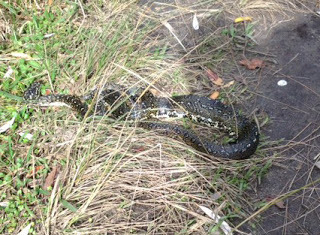 What a snake! It really was a big one.This place was my original inspiration for writing strange stories. On our very first visit here, I ran Coomie's Walk, a 9k loop through the bush, not knowing exactly where it went. Inevitably, I got lost, once the yellow direction arrows disappeared. Being from England, it hadn't really occurred to me then quite how remote things could be; as it started to get dark, I was crashing through undergrowth, having strayed from the path. I realised that no one would find me if I could not find my way. There was no chance of seeing anyone (in fact, in the years I have been running round Coomie's Walk, I have never seen anyone else there). I must admit, I was panicking a bit, and my skin was really 'prickling on the back of my neck'. After about half an hour of systematically searching around, noting landmarks and trees, I stumbled by accident back on to the path. By the time I was back on familiar ground it was almost completely dark, and it was obvious how lucky I had been. I still get goosebumps when I think about it now.
What a snake! It really was a big one.This place was my original inspiration for writing strange stories. On our very first visit here, I ran Coomie's Walk, a 9k loop through the bush, not knowing exactly where it went. Inevitably, I got lost, once the yellow direction arrows disappeared. Being from England, it hadn't really occurred to me then quite how remote things could be; as it started to get dark, I was crashing through undergrowth, having strayed from the path. I realised that no one would find me if I could not find my way. There was no chance of seeing anyone (in fact, in the years I have been running round Coomie's Walk, I have never seen anyone else there). I must admit, I was panicking a bit, and my skin was really 'prickling on the back of my neck'. After about half an hour of systematically searching around, noting landmarks and trees, I stumbled by accident back on to the path. By the time I was back on familiar ground it was almost completely dark, and it was obvious how lucky I had been. I still get goosebumps when I think about it now.
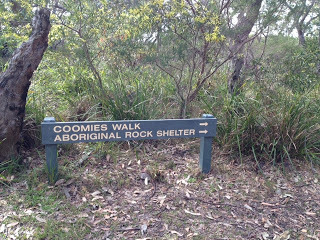 The turnoff for Coomie's Walk, which Merewether
The turnoff for Coomie's Walk, which Merewether
missed in my short story Abraham's Bosom.So this exquisite fear made me think that I could try to re-create the feeling in a story, and I started to think about some kind of plot. It soon became clear that there was some interesting local history which I might incorporate into something readable; a shipwreck and some biblical references from the past, and my first story was written. That was eight years ago, mind, and I've still only written eight or so more, so still not enough for my first collection! Mind you, watch this space ...
 The beaches are so crowded here ...
The beaches are so crowded here ...
 Looking towards Abraham's Bosom beachOn a bush walk yesterday, my children came skipping back to us very excited; they had seen a snake. And what a snake! Seriously big, curled up by the track and obviously asleep, digesting something large clearly visible as a lump inside. I don't know what kind it is, but the children were convinced it was a viper. Not sure about that; no doubt a python, so no danger to us, but best to leave it alone. It had gone when I ran past later in the day.
Looking towards Abraham's Bosom beachOn a bush walk yesterday, my children came skipping back to us very excited; they had seen a snake. And what a snake! Seriously big, curled up by the track and obviously asleep, digesting something large clearly visible as a lump inside. I don't know what kind it is, but the children were convinced it was a viper. Not sure about that; no doubt a python, so no danger to us, but best to leave it alone. It had gone when I ran past later in the day. What a snake! It really was a big one.This place was my original inspiration for writing strange stories. On our very first visit here, I ran Coomie's Walk, a 9k loop through the bush, not knowing exactly where it went. Inevitably, I got lost, once the yellow direction arrows disappeared. Being from England, it hadn't really occurred to me then quite how remote things could be; as it started to get dark, I was crashing through undergrowth, having strayed from the path. I realised that no one would find me if I could not find my way. There was no chance of seeing anyone (in fact, in the years I have been running round Coomie's Walk, I have never seen anyone else there). I must admit, I was panicking a bit, and my skin was really 'prickling on the back of my neck'. After about half an hour of systematically searching around, noting landmarks and trees, I stumbled by accident back on to the path. By the time I was back on familiar ground it was almost completely dark, and it was obvious how lucky I had been. I still get goosebumps when I think about it now.
What a snake! It really was a big one.This place was my original inspiration for writing strange stories. On our very first visit here, I ran Coomie's Walk, a 9k loop through the bush, not knowing exactly where it went. Inevitably, I got lost, once the yellow direction arrows disappeared. Being from England, it hadn't really occurred to me then quite how remote things could be; as it started to get dark, I was crashing through undergrowth, having strayed from the path. I realised that no one would find me if I could not find my way. There was no chance of seeing anyone (in fact, in the years I have been running round Coomie's Walk, I have never seen anyone else there). I must admit, I was panicking a bit, and my skin was really 'prickling on the back of my neck'. After about half an hour of systematically searching around, noting landmarks and trees, I stumbled by accident back on to the path. By the time I was back on familiar ground it was almost completely dark, and it was obvious how lucky I had been. I still get goosebumps when I think about it now. The turnoff for Coomie's Walk, which Merewether
The turnoff for Coomie's Walk, which Merewether missed in my short story Abraham's Bosom.So this exquisite fear made me think that I could try to re-create the feeling in a story, and I started to think about some kind of plot. It soon became clear that there was some interesting local history which I might incorporate into something readable; a shipwreck and some biblical references from the past, and my first story was written. That was eight years ago, mind, and I've still only written eight or so more, so still not enough for my first collection! Mind you, watch this space ...
 The beaches are so crowded here ...
The beaches are so crowded here ...
Published on July 28, 2013 03:52
July 16, 2013
Review: Falling Over by James Everington
James Everington's first collection, The Other Room, was one of my reads of the year in 2012, so I was very much looking forward to reading Falling Over, this time published by Infinity Plus.
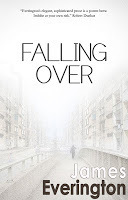
Entering Mr Everington's world is akin to discovering an alternative reality which, while superficially familiar, has some subtle but significant differences. That these differences exist just below the surface; hiding at the edge of things, nagging at you from the back of your mind, only adds to the power they wield. While reading Falling Over, I became aware of the cumulative effect of this paranoia by stealth. This meant that by the time I finished Public Interest Story, the final tale here, I found myself distrusting not only the media and any form of government, but also my own take on the world.
The reader's journey begins with the titular story, which takes hold with its opening sentence and does not let go. Set in a university's halls of residence during a summer break, the protagonist perceives of an identity crisis. He has convinced himself that Michelle, a fellow student who has returned from hospital after a fall, is not who she seems. Is it his imagination running wild, affected by the echoing, almost-deserted university buildings, or do others harbour their own suspicions too? Is there some kind of conspiracy, or is the reader persuaded to give too much credence to insignificant events? The substance of the story repeatedly falls away, just out of reach, but then strikes back at the end. This story has a dream-like atmosphere, helped by the ghostly location; the unnerving halls of residence remind me somewhat of the museum in that classic tale The Nightingale Floors by James Wade.
Next up is Fate, Destiny and a Fat Man from Arkansas, and the dream-like atmosphere is continued. The reader accompanies Tom and Sean on their rush towards their own destinies; there is a sense of inevitability, of seeing the better turning but being unable to take it. As they rush headlong (towards what?) the question is raised; how much can we really influence the direction our own lives take? This roller-coaster ride is followed by Haunted, a piece of flash fiction which deftly conveys a subtle, well-wrought story in 100 words. I thought of The Haunting of Hill House as I read this; and not just because of Eleanor. In every good collection of stories, there must be a certain amount of autobiography: and I feel that New Boy may contain more than a hint about the author's own experiences. The manager is returning to work after some time off, and finds that things have changed in his absence. There is indeed a 'new boy', but why does he seem so familiar? The manager gradually loses all authority, and is forced to come to terms with both his past and his future. I feel this may be the pivotal tale of this collection, incorporating aspects of alienation, mistaken identity, mystery and, ultimately, enlightenment.
The Time of Their Lives also hinges upon the uncertainty of both identity and the secrets of existence. Vince is a child on holiday with his grandparents at a dusty old hotel in an idyllic Cotswolds village. As the novelty of having his own room wears off, and he realises there may not be much to occupy his youthful mind, he is pleased to meet Alice, the only other child in the hotel. Between them they work out there is more to the situation than meets the eye; but true understanding is beyond Vince's ken. Could Alice's fate be determined by her keener mind? Such ambiguity is carried on to The Man Dogs Hated, where the protagonist is not a child but is perhaps just as naive. The dangers of the aspirational neighbourhood, and of what sacrifices are needed in order to 'fit in', are examined here, and how failure to toe the line is rewarded by rejection. Emma too has been rejected, in Sick Leave, up next. Upon her return to the classroom, she is unable to re-establish the close relationship she had enjoyed with her seven-year-olds before her absence. She becomes suspicious of the supply teacher's motives, and feels herself ostracised both by the children and Mr Hall, the head teacher. Illness and playground duty combine; but does the threat of ancient ritual hang over her? It may be too late to find out.
Modern warfare enters the mix in the form of Drones. The effect upon an individual of playing God, and of his just (or otherwise) desserts in the long term, should send a shiver down anyone's spine. The remote operation of weaponry is brought sharply into focus: "This job is like that – trained reaction to stimulus. If I've fired I can normally remember the screen filling with light, but not the decision-points, not the reasoning that got me, and them, to that destination." 'Drone' is the nickname of the unfortunate protagonist, who begins to be affected in a worrying way by the essence of his duties. Drones is very much a cautionary tale of retribution! Public Interest Story tops off this collection, and looks at how modern society can be manipulated through the media. The mere fact that Joel's image is reproduced in a newspaper leads to rejection, alienation and violence. I was reminded of Shirley Jackson's The Lottery as I read this story; the sheer inevitability of it all, and the lynch-mob mindlessly 'going through the motions'. Scary stuff indeed.
It's tempting to suggest the influences behind some of these tales, to say they may be 'Aickmanesque' or influenced by Kafka, Shirley Jackson and so on. However, having read James Everington's previous collection, The Other Room, what struck me most was that he has been busy developing his own style; it can be safely said that these are proudly James Everington stories, and all the better for it. Make no mistake, this is some of the very best strange fiction around.

Entering Mr Everington's world is akin to discovering an alternative reality which, while superficially familiar, has some subtle but significant differences. That these differences exist just below the surface; hiding at the edge of things, nagging at you from the back of your mind, only adds to the power they wield. While reading Falling Over, I became aware of the cumulative effect of this paranoia by stealth. This meant that by the time I finished Public Interest Story, the final tale here, I found myself distrusting not only the media and any form of government, but also my own take on the world.
The reader's journey begins with the titular story, which takes hold with its opening sentence and does not let go. Set in a university's halls of residence during a summer break, the protagonist perceives of an identity crisis. He has convinced himself that Michelle, a fellow student who has returned from hospital after a fall, is not who she seems. Is it his imagination running wild, affected by the echoing, almost-deserted university buildings, or do others harbour their own suspicions too? Is there some kind of conspiracy, or is the reader persuaded to give too much credence to insignificant events? The substance of the story repeatedly falls away, just out of reach, but then strikes back at the end. This story has a dream-like atmosphere, helped by the ghostly location; the unnerving halls of residence remind me somewhat of the museum in that classic tale The Nightingale Floors by James Wade.
Next up is Fate, Destiny and a Fat Man from Arkansas, and the dream-like atmosphere is continued. The reader accompanies Tom and Sean on their rush towards their own destinies; there is a sense of inevitability, of seeing the better turning but being unable to take it. As they rush headlong (towards what?) the question is raised; how much can we really influence the direction our own lives take? This roller-coaster ride is followed by Haunted, a piece of flash fiction which deftly conveys a subtle, well-wrought story in 100 words. I thought of The Haunting of Hill House as I read this; and not just because of Eleanor. In every good collection of stories, there must be a certain amount of autobiography: and I feel that New Boy may contain more than a hint about the author's own experiences. The manager is returning to work after some time off, and finds that things have changed in his absence. There is indeed a 'new boy', but why does he seem so familiar? The manager gradually loses all authority, and is forced to come to terms with both his past and his future. I feel this may be the pivotal tale of this collection, incorporating aspects of alienation, mistaken identity, mystery and, ultimately, enlightenment.
The Time of Their Lives also hinges upon the uncertainty of both identity and the secrets of existence. Vince is a child on holiday with his grandparents at a dusty old hotel in an idyllic Cotswolds village. As the novelty of having his own room wears off, and he realises there may not be much to occupy his youthful mind, he is pleased to meet Alice, the only other child in the hotel. Between them they work out there is more to the situation than meets the eye; but true understanding is beyond Vince's ken. Could Alice's fate be determined by her keener mind? Such ambiguity is carried on to The Man Dogs Hated, where the protagonist is not a child but is perhaps just as naive. The dangers of the aspirational neighbourhood, and of what sacrifices are needed in order to 'fit in', are examined here, and how failure to toe the line is rewarded by rejection. Emma too has been rejected, in Sick Leave, up next. Upon her return to the classroom, she is unable to re-establish the close relationship she had enjoyed with her seven-year-olds before her absence. She becomes suspicious of the supply teacher's motives, and feels herself ostracised both by the children and Mr Hall, the head teacher. Illness and playground duty combine; but does the threat of ancient ritual hang over her? It may be too late to find out.
Modern warfare enters the mix in the form of Drones. The effect upon an individual of playing God, and of his just (or otherwise) desserts in the long term, should send a shiver down anyone's spine. The remote operation of weaponry is brought sharply into focus: "This job is like that – trained reaction to stimulus. If I've fired I can normally remember the screen filling with light, but not the decision-points, not the reasoning that got me, and them, to that destination." 'Drone' is the nickname of the unfortunate protagonist, who begins to be affected in a worrying way by the essence of his duties. Drones is very much a cautionary tale of retribution! Public Interest Story tops off this collection, and looks at how modern society can be manipulated through the media. The mere fact that Joel's image is reproduced in a newspaper leads to rejection, alienation and violence. I was reminded of Shirley Jackson's The Lottery as I read this story; the sheer inevitability of it all, and the lynch-mob mindlessly 'going through the motions'. Scary stuff indeed.
It's tempting to suggest the influences behind some of these tales, to say they may be 'Aickmanesque' or influenced by Kafka, Shirley Jackson and so on. However, having read James Everington's previous collection, The Other Room, what struck me most was that he has been busy developing his own style; it can be safely said that these are proudly James Everington stories, and all the better for it. Make no mistake, this is some of the very best strange fiction around.
Published on July 16, 2013 23:02
July 8, 2013
Reviews: The Haunting of Hill House and The Lottery and Other Stories by Shirley Jackson
Shirley Jackson is one of those authors whose work I had always wanted to read, but had somehow never quite managed. In the end, it was down to James Everington; he had mentioned his admiration of her work on several occasions, and eventually I downloaded both The Haunting of Hill House and The Lottery and Other Stories from our friends at Amazon.
The Haunting of Hill HouseBy Shirley Jackson
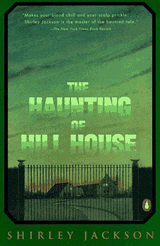 This is well known as one of the most famous and influential of haunted house tales, later filmed as The Haunting by Robert Wise in 1963 (though I must admit I have not seen it).
This is well known as one of the most famous and influential of haunted house tales, later filmed as The Haunting by Robert Wise in 1963 (though I must admit I have not seen it).
To begin, I feel I should reproduce here the book's opening paragraph, often quoted (by, among others, Stephen King) as being one of the finest descriptive passages in the English language:
No live organism can continue for long to exist sanely under conditions of absolute reality; even larks and katydids are supposed, by some, to dream. Hill House, not sane, stood by itself against its hills, holding darkness within; it had stood so for eighty years and might stand for eighty more. Within, walls continued upright, bricks met neatly, floors were firm, and doors were sensibly shut; silence lay steadily against the wood and stone of Hill House, and whatever walked there, walked alone.
The reader is at once drawn into the world inhabited by Eleanor Vance, an insecure, vaguely mysterious woman whose life has lost most of its meaning and direction. She becomes part of Dr Montague's investigation into paranormal occurrences at a country house, along with Theodora, a rather more flamboyant character, and Luke Sanderson, the wastrel nephew of the house's owner. The book deals as much with the relationships they form (particularly between the women; full of hidden significance and repressed violence), as it does with supernatural happenings. Eleanor finds herself strangely drawn to the house, with a mystifying sense of belonging. Has she in some way returned home? The haunting could be more to do with Eleanor than with the house; and the mystery surrounding her past only adds to this impression.
Jackson's writing style is delightfully sparse, being at once matter-of-fact yet brilliantly evocative, managing to convey so much with so few words. Everyday occurrences are lent heavy significance, and the reader is constantly on edge, wondering when the evil might creep out from the shadows of the seemingly mundane. As a result, when the house strikes, its effect is doubly powerful.
There were several scenes in the book which were genuinely scary. The one which stays with me the most occurred when Eleanor and Theodora were sharing a bedroom, and they held hands in the darkness for reassurance during a disturbance. 'Now, Eleanor thought, perceiving that she was lying sideways on the bed in the black darkness, holding with both hands to Theodora's hand, holding so tight she could feel the fine bones of Theodora's fingers.'
But when the light comes on, Eleanor realises that Theodora had been asleep, and it could not have been Theodora's hand she held; and the reader suddenly wonders just what the 'fine bones' she felt could have been. '"Good God", Eleanor said, flinging herself out of bed and across the room to stand shuddering in a corner, "Good God – whose hand was I holding?"'
Apparently Jackson researched thoroughly before she wrote The Haunting of Hill House, reading all the ghost stories she could, visiting supposedly haunted houses, and the result is something of a study of the horror genre. It must be one of the finest ghost stories ever written.
The Lottery and Other StoriesBy Shirley Jackson
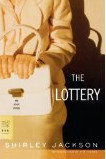 Jackson was widely known as the author of The Lottery, a short story which was first published in 1948 in the New Yorker magazine, creating much controversy at the time. It provoked an unprecedented response from the public; a record number of letters arrived at the publisher's offices, most of them demanding to know what the story meant. I admit I read The Lottery first, although it is the final story in this collection. It is certainly dark and sinister. It describes with growing suspense a small-town lottery; but to decide exactly what? Perhaps its indictment of small-town America is not so shocking now, but it must surely have been challenging at the time. It's not the story that sticks in my mind the most from this collection, however, perhaps because it is just a little too conventional. Nonetheless it's perfectly-formed, and it is, quite rightly, one of the best-known short stories ever written.
Jackson was widely known as the author of The Lottery, a short story which was first published in 1948 in the New Yorker magazine, creating much controversy at the time. It provoked an unprecedented response from the public; a record number of letters arrived at the publisher's offices, most of them demanding to know what the story meant. I admit I read The Lottery first, although it is the final story in this collection. It is certainly dark and sinister. It describes with growing suspense a small-town lottery; but to decide exactly what? Perhaps its indictment of small-town America is not so shocking now, but it must surely have been challenging at the time. It's not the story that sticks in my mind the most from this collection, however, perhaps because it is just a little too conventional. Nonetheless it's perfectly-formed, and it is, quite rightly, one of the best-known short stories ever written.
The story I enjoyed the most was The Tooth, which breaks my rule that it's necessary for a good short story to have a good title! Overcoming my distaste, I was stunned by this ambiguous gem. Jackson is adept at creating atmosphere, and the sense of impending doom this tale creates is almost suffocating. Clara Spencer has a sore tooth; and she takes herself off to the big city to see a dentist. As far as the plot goes, that's about it; but, as in all the most haunting tales, the beauty is in the journey.
My Life With R. H. Macy is a stream-of-consciousness look at the dehumanising effects of mundane employment, and is chillingly hilarious. In The Daemon Lover, a woman waits for, then searches for, the man she is to marry that day, only to find that he has disappeared as completely as if he had never existed; and she finds it possible to forgive, but not to forget. In Trial by Combat, a shy woman confronts her kleptomaniac neighbour, and in Pillar of Salt, a tourist in New York is gradually paralysed by the threatening city. These are disturbing, unforgettable tales with satisfyingly ambiguous endings.
Jackson had two writing styles. She wrote with detail and humour about domesticity, lending a significance to everyday chores; and yet she could move swiftly to cold-blooded and dispassionate psychological horror without apparent effort. Her taut and spare prose builds a story's mood quickly and efficiently, ideal for short stories where the reader needs to be engaged from the first line. She must have been a pioneer of the unresolved ending; and, in fact, my only caveat about this collection is that one or two of the stories have endings which seem to be truncated rather than unresolved.
These tales are beautifully written, and I enjoyed reading them all. They are eerie, unforgettable, by turns terrifying and hilarious, creating a bright, sharp world where the strange lurks in the darkness just around the corner, and where nothing is quite as it seems. The Lottery and Other Stories was the only collection to be published during the author's lifetime.
The Haunting of Hill HouseBy Shirley Jackson
 This is well known as one of the most famous and influential of haunted house tales, later filmed as The Haunting by Robert Wise in 1963 (though I must admit I have not seen it).
This is well known as one of the most famous and influential of haunted house tales, later filmed as The Haunting by Robert Wise in 1963 (though I must admit I have not seen it). To begin, I feel I should reproduce here the book's opening paragraph, often quoted (by, among others, Stephen King) as being one of the finest descriptive passages in the English language:
No live organism can continue for long to exist sanely under conditions of absolute reality; even larks and katydids are supposed, by some, to dream. Hill House, not sane, stood by itself against its hills, holding darkness within; it had stood so for eighty years and might stand for eighty more. Within, walls continued upright, bricks met neatly, floors were firm, and doors were sensibly shut; silence lay steadily against the wood and stone of Hill House, and whatever walked there, walked alone.
The reader is at once drawn into the world inhabited by Eleanor Vance, an insecure, vaguely mysterious woman whose life has lost most of its meaning and direction. She becomes part of Dr Montague's investigation into paranormal occurrences at a country house, along with Theodora, a rather more flamboyant character, and Luke Sanderson, the wastrel nephew of the house's owner. The book deals as much with the relationships they form (particularly between the women; full of hidden significance and repressed violence), as it does with supernatural happenings. Eleanor finds herself strangely drawn to the house, with a mystifying sense of belonging. Has she in some way returned home? The haunting could be more to do with Eleanor than with the house; and the mystery surrounding her past only adds to this impression.
Jackson's writing style is delightfully sparse, being at once matter-of-fact yet brilliantly evocative, managing to convey so much with so few words. Everyday occurrences are lent heavy significance, and the reader is constantly on edge, wondering when the evil might creep out from the shadows of the seemingly mundane. As a result, when the house strikes, its effect is doubly powerful.
There were several scenes in the book which were genuinely scary. The one which stays with me the most occurred when Eleanor and Theodora were sharing a bedroom, and they held hands in the darkness for reassurance during a disturbance. 'Now, Eleanor thought, perceiving that she was lying sideways on the bed in the black darkness, holding with both hands to Theodora's hand, holding so tight she could feel the fine bones of Theodora's fingers.'
But when the light comes on, Eleanor realises that Theodora had been asleep, and it could not have been Theodora's hand she held; and the reader suddenly wonders just what the 'fine bones' she felt could have been. '"Good God", Eleanor said, flinging herself out of bed and across the room to stand shuddering in a corner, "Good God – whose hand was I holding?"'
Apparently Jackson researched thoroughly before she wrote The Haunting of Hill House, reading all the ghost stories she could, visiting supposedly haunted houses, and the result is something of a study of the horror genre. It must be one of the finest ghost stories ever written.
The Lottery and Other StoriesBy Shirley Jackson
 Jackson was widely known as the author of The Lottery, a short story which was first published in 1948 in the New Yorker magazine, creating much controversy at the time. It provoked an unprecedented response from the public; a record number of letters arrived at the publisher's offices, most of them demanding to know what the story meant. I admit I read The Lottery first, although it is the final story in this collection. It is certainly dark and sinister. It describes with growing suspense a small-town lottery; but to decide exactly what? Perhaps its indictment of small-town America is not so shocking now, but it must surely have been challenging at the time. It's not the story that sticks in my mind the most from this collection, however, perhaps because it is just a little too conventional. Nonetheless it's perfectly-formed, and it is, quite rightly, one of the best-known short stories ever written.
Jackson was widely known as the author of The Lottery, a short story which was first published in 1948 in the New Yorker magazine, creating much controversy at the time. It provoked an unprecedented response from the public; a record number of letters arrived at the publisher's offices, most of them demanding to know what the story meant. I admit I read The Lottery first, although it is the final story in this collection. It is certainly dark and sinister. It describes with growing suspense a small-town lottery; but to decide exactly what? Perhaps its indictment of small-town America is not so shocking now, but it must surely have been challenging at the time. It's not the story that sticks in my mind the most from this collection, however, perhaps because it is just a little too conventional. Nonetheless it's perfectly-formed, and it is, quite rightly, one of the best-known short stories ever written.The story I enjoyed the most was The Tooth, which breaks my rule that it's necessary for a good short story to have a good title! Overcoming my distaste, I was stunned by this ambiguous gem. Jackson is adept at creating atmosphere, and the sense of impending doom this tale creates is almost suffocating. Clara Spencer has a sore tooth; and she takes herself off to the big city to see a dentist. As far as the plot goes, that's about it; but, as in all the most haunting tales, the beauty is in the journey.
My Life With R. H. Macy is a stream-of-consciousness look at the dehumanising effects of mundane employment, and is chillingly hilarious. In The Daemon Lover, a woman waits for, then searches for, the man she is to marry that day, only to find that he has disappeared as completely as if he had never existed; and she finds it possible to forgive, but not to forget. In Trial by Combat, a shy woman confronts her kleptomaniac neighbour, and in Pillar of Salt, a tourist in New York is gradually paralysed by the threatening city. These are disturbing, unforgettable tales with satisfyingly ambiguous endings.
Jackson had two writing styles. She wrote with detail and humour about domesticity, lending a significance to everyday chores; and yet she could move swiftly to cold-blooded and dispassionate psychological horror without apparent effort. Her taut and spare prose builds a story's mood quickly and efficiently, ideal for short stories where the reader needs to be engaged from the first line. She must have been a pioneer of the unresolved ending; and, in fact, my only caveat about this collection is that one or two of the stories have endings which seem to be truncated rather than unresolved.
These tales are beautifully written, and I enjoyed reading them all. They are eerie, unforgettable, by turns terrifying and hilarious, creating a bright, sharp world where the strange lurks in the darkness just around the corner, and where nothing is quite as it seems. The Lottery and Other Stories was the only collection to be published during the author's lifetime.
Published on July 08, 2013 18:28
June 21, 2013
The Second Coming by WB Yeats, and a review
It's been some time since I have posted any creepy poetry, so I thought I'd pop this classic up for your perusal. It's a much-anthologised and very significant piece by Yeats, reflecting the mystic theory of his book and lifelong obsession A Vision, in which he espouses his ideas of the construction of the universe. From what I remember this was very complex, involving two conical spirals (he referred to them as 'gyres'), influencing the direction and influences upon mankind. The 'second coming' here signifies the two spirals touching (at that particular moment in time), and the 'rough beast', perhaps a giant sphinx, subsequently taking the world towards disorder and mayhem. It was written in 1921, so depending on your point of view, he was either misguided or very accurate indeed!
The Second Coming
by W. B. Yeats
Turning and turning in the widening gyre
The falcon cannot hear the falconer;
Things fall apart; the centre cannot hold;
Mere anarchy is loosed upon the world,
The blood-dimmed tide is loosed, and everywhere
The ceremony of innocence is drowned;
The best lack all conviction, while the worst
Are full of passionate intensity.
Surely some revelation is at hand;
Surely the Second Coming is at hand.
The Second Coming! Hardly are those words out
When a vast image out of Spiritus Mundi
Troubles my sight: somewhere in sands of the desert
A shape with lion body and the head of a man,
A gaze blank and pitiless as the sun,
Is moving its slow thighs, while all about it
Reel shadows of the indignant desert birds.
The darkness drops again; but now I know
That twenty centuries of stony sleep
Were vexed to nightmare by a rocking cradle,
And what rough beast, its hour come round at last,
Slouches towards Bethlehem to be born?
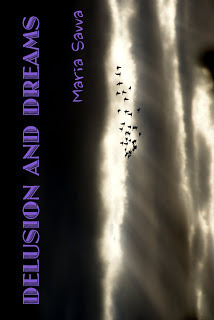 Review of Delusion and Dreams by Maria SavvaI thoroughly enjoyed reading Maria Savva's previous collection of short stories, Love and Loyalty, and I posted a review here. So I have been looking forward to reading this, her latest collection.
Review of Delusion and Dreams by Maria SavvaI thoroughly enjoyed reading Maria Savva's previous collection of short stories, Love and Loyalty, and I posted a review here. So I have been looking forward to reading this, her latest collection.
Delusion and Dreams doesn't disappoint. It kicks off with Delusion and Dreams Part 1, which forms the first part of a storyline running throughout the book, written from different viewpoints. This first installment outlines Jack's descent towards ostracism, all too easy in the modern world; and poses some awkward questions. Next up is Hair Today, Gone Tomorrow, which offers a title apt in more ways than one, and some humorous relief; but only through misunderstanding and broken promises. It's clear straight away that the protagonists in these stories are all realistic and well-rounded.
The first line of Happy New Year grabs you, and the story never lets you go as it unravels expertly. Jonathan Graves begins to doubt his own motives during an interrogation, and so will you; but what will be revealed in the end? Following on, Friends and Neighbours is an intriguing tale of a delightful young couple helping out their elderly neighbour and things not going quite to plan – and how opposites do not always attract. Delusion and Dreams Part 2 offers a different perspective, and contains some surprises about Jessie's situation which will make the reader stop and think. Getting Away With It is one of those compelling stories I couldn't read quickly enough, desperate to find out what happens next; I won't say more than that! Friends and Neighbours – Revisited opens the reader's eyes to another viewpoint as the story follows on, involving both the ultimate betrayal, and a twist at the end.
Seeing is Believing involves sympathy, misunderstanding, and sweet revenge – in a most unexpected way. This cautionary tale leads into Delusion and Dreams Part 3, which exposes the cracks beneath the surface of suburban existence. The best short stories make you stop and think, reconsidering your own place in the world, and Merry-go-round certainly does that. Mandy is worn down by family routine, and is pleasantly surprised by the events of one evening – but is everything as it seems? The tables are turned in a surprising way for James in Courage, the story of a young boy's many hangups. It would seem he is victorious in the end, but the seeds of doubt are planted in the very last paragraph. Delusion and Dreams Part 4 caps the collection, leaving the reader wondering whether there really is any loyalty left in the world.
Delusion and Dreams gives the reader strong, believable characters being presented with varying kinds of dilemma, and then makes it possible to examine the motives behind their actions. This is an endlessly fascinating prospect, because it is the essence of human nature; and Maria Savva understands human nature well. I must add that there are five bonus stories, Flames, Isolation, Winter Blues, Michaela and The Game of Life, which are all excellent, ensuring this is a satisfying read. If you are interested in looking beyond the obvious in everyday life, this collection is for you!
The Second Coming
by W. B. Yeats
Turning and turning in the widening gyre
The falcon cannot hear the falconer;
Things fall apart; the centre cannot hold;
Mere anarchy is loosed upon the world,
The blood-dimmed tide is loosed, and everywhere
The ceremony of innocence is drowned;
The best lack all conviction, while the worst
Are full of passionate intensity.
Surely some revelation is at hand;
Surely the Second Coming is at hand.
The Second Coming! Hardly are those words out
When a vast image out of Spiritus Mundi
Troubles my sight: somewhere in sands of the desert
A shape with lion body and the head of a man,
A gaze blank and pitiless as the sun,
Is moving its slow thighs, while all about it
Reel shadows of the indignant desert birds.
The darkness drops again; but now I know
That twenty centuries of stony sleep
Were vexed to nightmare by a rocking cradle,
And what rough beast, its hour come round at last,
Slouches towards Bethlehem to be born?
 Review of Delusion and Dreams by Maria SavvaI thoroughly enjoyed reading Maria Savva's previous collection of short stories, Love and Loyalty, and I posted a review here. So I have been looking forward to reading this, her latest collection.
Review of Delusion and Dreams by Maria SavvaI thoroughly enjoyed reading Maria Savva's previous collection of short stories, Love and Loyalty, and I posted a review here. So I have been looking forward to reading this, her latest collection.Delusion and Dreams doesn't disappoint. It kicks off with Delusion and Dreams Part 1, which forms the first part of a storyline running throughout the book, written from different viewpoints. This first installment outlines Jack's descent towards ostracism, all too easy in the modern world; and poses some awkward questions. Next up is Hair Today, Gone Tomorrow, which offers a title apt in more ways than one, and some humorous relief; but only through misunderstanding and broken promises. It's clear straight away that the protagonists in these stories are all realistic and well-rounded.
The first line of Happy New Year grabs you, and the story never lets you go as it unravels expertly. Jonathan Graves begins to doubt his own motives during an interrogation, and so will you; but what will be revealed in the end? Following on, Friends and Neighbours is an intriguing tale of a delightful young couple helping out their elderly neighbour and things not going quite to plan – and how opposites do not always attract. Delusion and Dreams Part 2 offers a different perspective, and contains some surprises about Jessie's situation which will make the reader stop and think. Getting Away With It is one of those compelling stories I couldn't read quickly enough, desperate to find out what happens next; I won't say more than that! Friends and Neighbours – Revisited opens the reader's eyes to another viewpoint as the story follows on, involving both the ultimate betrayal, and a twist at the end.
Seeing is Believing involves sympathy, misunderstanding, and sweet revenge – in a most unexpected way. This cautionary tale leads into Delusion and Dreams Part 3, which exposes the cracks beneath the surface of suburban existence. The best short stories make you stop and think, reconsidering your own place in the world, and Merry-go-round certainly does that. Mandy is worn down by family routine, and is pleasantly surprised by the events of one evening – but is everything as it seems? The tables are turned in a surprising way for James in Courage, the story of a young boy's many hangups. It would seem he is victorious in the end, but the seeds of doubt are planted in the very last paragraph. Delusion and Dreams Part 4 caps the collection, leaving the reader wondering whether there really is any loyalty left in the world.
Delusion and Dreams gives the reader strong, believable characters being presented with varying kinds of dilemma, and then makes it possible to examine the motives behind their actions. This is an endlessly fascinating prospect, because it is the essence of human nature; and Maria Savva understands human nature well. I must add that there are five bonus stories, Flames, Isolation, Winter Blues, Michaela and The Game of Life, which are all excellent, ensuring this is a satisfying read. If you are interested in looking beyond the obvious in everyday life, this collection is for you!
Published on June 21, 2013 00:09
June 17, 2013
Cafe society, running and e-books
As I've probably mentioned before, I tend to do most of my writing while watching the world go by in a fairly busy cafe. I think there are a few reasons for this. First, I am what is usually referred to as a 'house husband'. So therefore, when I'm at home, there are myriad distractions such as washing up, making beds, making dinner for children, and so on. Second, I'm a fairly sociable person; and writing while looking after offspring can lead to a lack of human interaction (at least, humans older than eight or so). Third, I love to be outside, so I enjoy the walk up the hill from Coogee to Randwick. Luckily, I live near many great cafes, my favourite of which is Cafeonesixnine, pictured below. I usually sit at one of those round tables on the left. Those windows open right up to take advantage of the Sydney weather (by the way, mine's a large soy flat white if you're offering...)
 My haven! CafeonesixnineRunning is very important to me. I have recently read a couple of blog posts about writers who are also runners, so it seems I'm not the only one. (The excellent Chris Hill posted one here). I find that I can often think clearly while on a run, and a difficult aspect of plot can be resolved with ease. There are different kinds of running though; a steady jog, for an hour or so, is great for the creative juices, but I also do some tough sessions with a group of other runners. Then it's just survival. Nothing else is in your mind apart from finishing the required number of repeats, or keeping the correct pace. Then, I feel it is like a re-set switch for the brain; and, after I've recovered, problems can be faced with renewed focus! Unless, of course, the session went badly, in which case I'm just depressed, but that's another story ...
My haven! CafeonesixnineRunning is very important to me. I have recently read a couple of blog posts about writers who are also runners, so it seems I'm not the only one. (The excellent Chris Hill posted one here). I find that I can often think clearly while on a run, and a difficult aspect of plot can be resolved with ease. There are different kinds of running though; a steady jog, for an hour or so, is great for the creative juices, but I also do some tough sessions with a group of other runners. Then it's just survival. Nothing else is in your mind apart from finishing the required number of repeats, or keeping the correct pace. Then, I feel it is like a re-set switch for the brain; and, after I've recovered, problems can be faced with renewed focus! Unless, of course, the session went badly, in which case I'm just depressed, but that's another story ...
 Must keep going! I've only got a few k to go ...I've just ordered a copy of Night Voices by Robert Aickman, one of the Tartarus Press re-prints. I bought Aickman's Collected Stories from Tartarus back in 2001, and read them cover to cover. In subsequent years, I have re-read most of the stories within many times. Then, I tracked down most of his first edition hardbacks from the '60s and '70s, which I treasure. Some of them are signed too. There are some pics here, and here if you're interested. Despite this, I still have to get all the new Tartarus editions as well ... just because they are so beautiful. Plus, it's a good excuse to read those timeless tales once more! Here is a shot of my favourite bookshelf:
Must keep going! I've only got a few k to go ...I've just ordered a copy of Night Voices by Robert Aickman, one of the Tartarus Press re-prints. I bought Aickman's Collected Stories from Tartarus back in 2001, and read them cover to cover. In subsequent years, I have re-read most of the stories within many times. Then, I tracked down most of his first edition hardbacks from the '60s and '70s, which I treasure. Some of them are signed too. There are some pics here, and here if you're interested. Despite this, I still have to get all the new Tartarus editions as well ... just because they are so beautiful. Plus, it's a good excuse to read those timeless tales once more! Here is a shot of my favourite bookshelf:
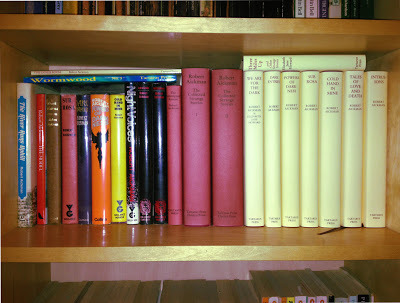
Here's my second favourite bookshelf, my existential section (is it really there? I guess, in a sense ...):
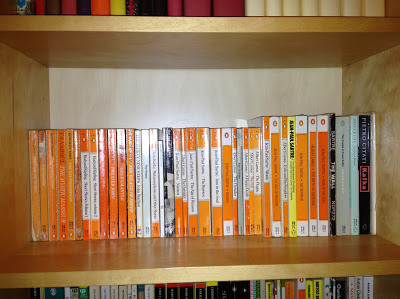
There are thousands of books in our house; however, I must say I am addicted to electronic books. I love the immediacy of downloading what I want to read straight away, and it's safe to say I have read many more books because of that convenience than I would have otherwise. It has opened a whole new world for me. I've never had a problem with poorly-written e-books, purely because I am a fussy reader. I would not read anything I felt was not worthwhile either on a kindle or as a physical book. I am more likely to take a risk on an electronic book, admittedly, but being able to read the first few pages on Amazon is invaluable. Also, I don't think I have bought fewer physical books, because if I enjoy an e-book enough, I will definitely purchase the 'real thing', which I may not have risked if I hadn't read the e-version. I do regret the decline of bookshops, though, and I can't convince myself I'm not complicit in this. I still love browsing and buying a book, and I make sure I do so often. I'm in two minds about Amazon. I know the situation is essentially unhealthy, but all I can do is this; when there is an option, I go elsewhere. For example, I go to Ash-Tree press to get their e-books, and also to Tartarus to get theirs, rather than to Amazon. I don't suppose that means much, but there you are.
I would be most interested to hear your views on the e-book debate, and also on the perceived quality or otherwise of self-published books.
 My haven! CafeonesixnineRunning is very important to me. I have recently read a couple of blog posts about writers who are also runners, so it seems I'm not the only one. (The excellent Chris Hill posted one here). I find that I can often think clearly while on a run, and a difficult aspect of plot can be resolved with ease. There are different kinds of running though; a steady jog, for an hour or so, is great for the creative juices, but I also do some tough sessions with a group of other runners. Then it's just survival. Nothing else is in your mind apart from finishing the required number of repeats, or keeping the correct pace. Then, I feel it is like a re-set switch for the brain; and, after I've recovered, problems can be faced with renewed focus! Unless, of course, the session went badly, in which case I'm just depressed, but that's another story ...
My haven! CafeonesixnineRunning is very important to me. I have recently read a couple of blog posts about writers who are also runners, so it seems I'm not the only one. (The excellent Chris Hill posted one here). I find that I can often think clearly while on a run, and a difficult aspect of plot can be resolved with ease. There are different kinds of running though; a steady jog, for an hour or so, is great for the creative juices, but I also do some tough sessions with a group of other runners. Then it's just survival. Nothing else is in your mind apart from finishing the required number of repeats, or keeping the correct pace. Then, I feel it is like a re-set switch for the brain; and, after I've recovered, problems can be faced with renewed focus! Unless, of course, the session went badly, in which case I'm just depressed, but that's another story ... Must keep going! I've only got a few k to go ...I've just ordered a copy of Night Voices by Robert Aickman, one of the Tartarus Press re-prints. I bought Aickman's Collected Stories from Tartarus back in 2001, and read them cover to cover. In subsequent years, I have re-read most of the stories within many times. Then, I tracked down most of his first edition hardbacks from the '60s and '70s, which I treasure. Some of them are signed too. There are some pics here, and here if you're interested. Despite this, I still have to get all the new Tartarus editions as well ... just because they are so beautiful. Plus, it's a good excuse to read those timeless tales once more! Here is a shot of my favourite bookshelf:
Must keep going! I've only got a few k to go ...I've just ordered a copy of Night Voices by Robert Aickman, one of the Tartarus Press re-prints. I bought Aickman's Collected Stories from Tartarus back in 2001, and read them cover to cover. In subsequent years, I have re-read most of the stories within many times. Then, I tracked down most of his first edition hardbacks from the '60s and '70s, which I treasure. Some of them are signed too. There are some pics here, and here if you're interested. Despite this, I still have to get all the new Tartarus editions as well ... just because they are so beautiful. Plus, it's a good excuse to read those timeless tales once more! Here is a shot of my favourite bookshelf:
Here's my second favourite bookshelf, my existential section (is it really there? I guess, in a sense ...):

There are thousands of books in our house; however, I must say I am addicted to electronic books. I love the immediacy of downloading what I want to read straight away, and it's safe to say I have read many more books because of that convenience than I would have otherwise. It has opened a whole new world for me. I've never had a problem with poorly-written e-books, purely because I am a fussy reader. I would not read anything I felt was not worthwhile either on a kindle or as a physical book. I am more likely to take a risk on an electronic book, admittedly, but being able to read the first few pages on Amazon is invaluable. Also, I don't think I have bought fewer physical books, because if I enjoy an e-book enough, I will definitely purchase the 'real thing', which I may not have risked if I hadn't read the e-version. I do regret the decline of bookshops, though, and I can't convince myself I'm not complicit in this. I still love browsing and buying a book, and I make sure I do so often. I'm in two minds about Amazon. I know the situation is essentially unhealthy, but all I can do is this; when there is an option, I go elsewhere. For example, I go to Ash-Tree press to get their e-books, and also to Tartarus to get theirs, rather than to Amazon. I don't suppose that means much, but there you are.
I would be most interested to hear your views on the e-book debate, and also on the perceived quality or otherwise of self-published books.
Published on June 17, 2013 20:01
June 15, 2013
Progress with Dying Embers
I have now completed seven short stories for my inaugural collection, tentatively titled Dying Embers. I realise I haven't mentioned this lately, as progress has been painfully slow. Even the stories which have been published previously have been revamped. In fact every time I re-read them I change something! Does anyone else have this problem? Anyway, my feeling is I need around 10 in total, which is OK as I have five more in progress; but at this rate it will be another few months before I can even think about finalising things. Part of the trouble is that I have not been writing for long (not fiction at least) so I don't have any kind of 'treasure chest' of previously written stuff. Also, the layout and general look of the book is concerning me. As a graphic designer, I'm used to having complete control over these things, and with e-books these aspects are amorphous to say the least. The cover is fine, but I want the typography within to work well too. I have experimented with PressBooks, and that seems to work very well. I have entered my text into separate "chapters" which affords good flexibility. It's free, simple to use, and I would recommend it to anyone putting a book together.
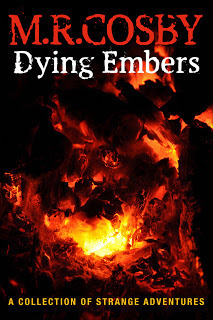
Here are the stories I have completed so far:
The Next Terrace
The past collides with the present; childhood bonds are first stretched to the limit then broken in this tale influenced by Dante's Inferno.
Playing Tag
An historic building holds the key to a terrible secret from Letherby's youth. Why is he drawn so powerfully to its mysterious Pavilion?
The Source of the Lea
Pocock witnesses something on the river bank which changes the course of his life. Did it really lead to him discovering the true source of the Lea?
In Transit
A passenger on an international flight finds he is most certainly not master of his own destiny. Finding out who is, though, is quite another matter!
Necessary Procedure
An ill-fated property search leads firstly to admission, then a strange form of retribution; and, ultimately, reunion.
Unit 6
The alien landscape of a network of warehouses provides the background to a remarkable transformation. Or does it?
Abraham's Bosom
A remote coastal walk still echoes with a tragic event from long ago, charting an individual's gradual descent into some kind of madness.
Here are the stories I'm still working on:
Turning the Cup
The traditional art of tasseography combines with local folklore to resurrect an unwelcome visitor.
Building Bridges
You always wanted a left-field story about dinosaurs! Well, I hope you did anyway.
Fingerprinting
Rural Australia proves to be less welcoming than Preston had hoped ...
The Key
An impulse purchase on eBay has an uncanny effect, and proves more trouble than it's worth.
Burnt Close
The exploration of a newly-built housing estate changes the course of some young lives.
Hopefully it won't be too many months until it's all done and dusted. I'll keep you informed!

Here are the stories I have completed so far:
The Next Terrace
The past collides with the present; childhood bonds are first stretched to the limit then broken in this tale influenced by Dante's Inferno.
Playing Tag
An historic building holds the key to a terrible secret from Letherby's youth. Why is he drawn so powerfully to its mysterious Pavilion?
The Source of the Lea
Pocock witnesses something on the river bank which changes the course of his life. Did it really lead to him discovering the true source of the Lea?
In Transit
A passenger on an international flight finds he is most certainly not master of his own destiny. Finding out who is, though, is quite another matter!
Necessary Procedure
An ill-fated property search leads firstly to admission, then a strange form of retribution; and, ultimately, reunion.
Unit 6
The alien landscape of a network of warehouses provides the background to a remarkable transformation. Or does it?
Abraham's Bosom
A remote coastal walk still echoes with a tragic event from long ago, charting an individual's gradual descent into some kind of madness.
Here are the stories I'm still working on:
Turning the Cup
The traditional art of tasseography combines with local folklore to resurrect an unwelcome visitor.
Building Bridges
You always wanted a left-field story about dinosaurs! Well, I hope you did anyway.
Fingerprinting
Rural Australia proves to be less welcoming than Preston had hoped ...
The Key
An impulse purchase on eBay has an uncanny effect, and proves more trouble than it's worth.
Burnt Close
The exploration of a newly-built housing estate changes the course of some young lives.
Hopefully it won't be too many months until it's all done and dusted. I'll keep you informed!
Published on June 15, 2013 03:09



